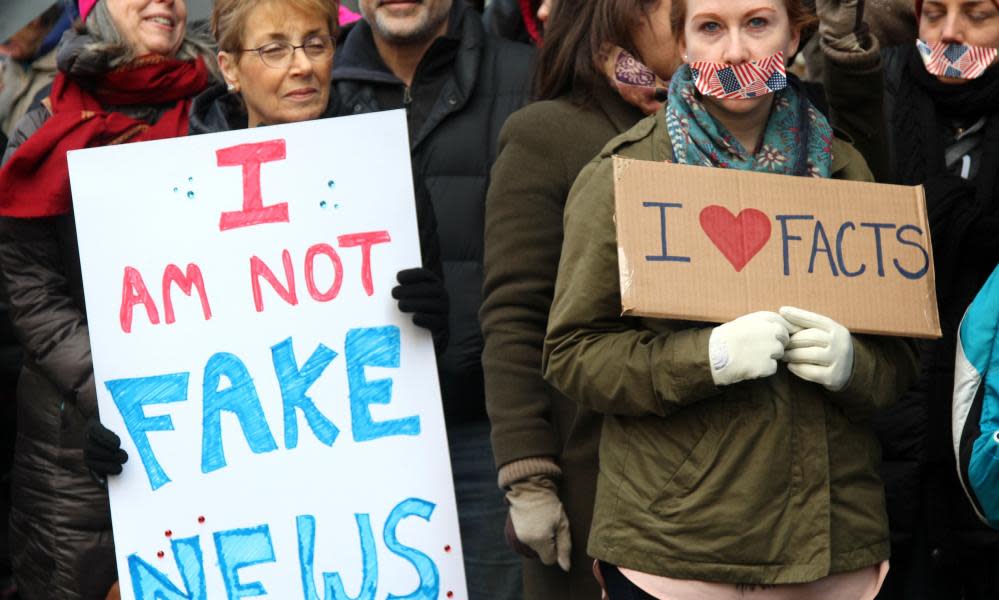After Trump threatens the press, senator asks FCC to affirm free speech

Raising an alarm over Donald Trump’s repeated attacks last week on free speech protections, a Democratic senator is demanding that board members of the Federal Communications Commission (FCC) individually affirm their commitment to first amendment rights.
Richard Blumenthal of Connecticut planned to release a letter on Monday in which he calls on the five-member FCC board of commissioners to declare their personal support for free speech, the Associated Press reported.
Echoing Blumenthal’s concerns, one member of the commission obliquely criticized FCC chairman Ajit Pai’s failure to speak out against Trump’s attacks.
“I can’t really speak to what he is thinking,” Jessica Rosenworcel told CNN’s Reliable Sources on Sunday. “But I do think that history won’t be kind to silence.”
Following what he perceived as tendentious news coverage last week on NBC News, Trump suggested to reporters in the Oval Office on Wednesday that free speech protections should come under review.
“It is frankly disgusting the way the press is able to write whatever they want to write and people should look into it,” Trump said.
Earlier in the day he had tweeted: “With all of the Fake News coming out of NBC and the Networks, at what point is it appropriate to challenge their License? Bad for country!”
The FCC controls television licenses as well as satellite, cable and radio licenses nationwide. Four out of five current FCC commissioners, including Pai, were appointed by Barack Obama.
Trump’s threat recalled an effort by Richard Nixon to deny license renewal for television stations in Florida owned by the Washington Post during the Watergate scandal. While Trump referred to “their license” in criticizing NBC, it is not the network itself that is licensed but rather individual stations.
Trump has threatened first amendment protections before. In February 2016, as a candidate for president, he told a rally in Fort Worth, Texas that if elected he would “open up our libel laws so when [newspapers] write purposely negative stories … we can sue them and make lots of money”.
The move, Trump said, would mean that “when the New York Times or the Washington Post writes a hit piece, we can sue them”.
Freedom of speech is a foundational US principle. On the same day Trump threatened NBC’s license, the state department articulated the idea in statement about a journalist sentenced to prison in Turkey.
“Freedom of expression, including for speech and the media – even speech which some find controversial or uncomfortable – strengthens democracy and needs to be protected,” the state department said.
“More voices, not fewer, are necessary in challenging times.”

 Yahoo News
Yahoo News 
